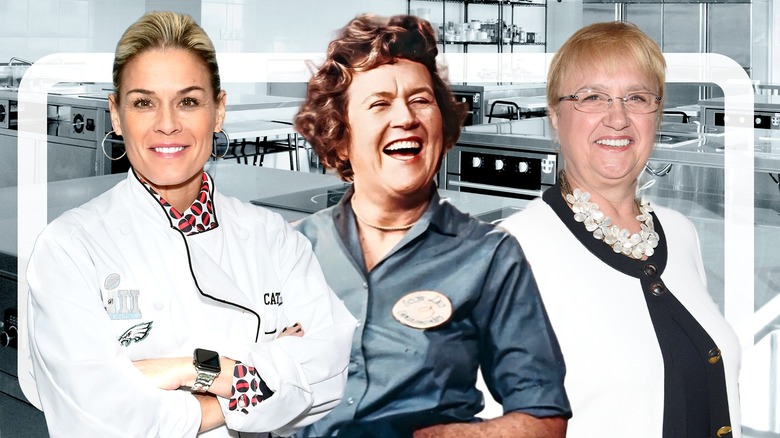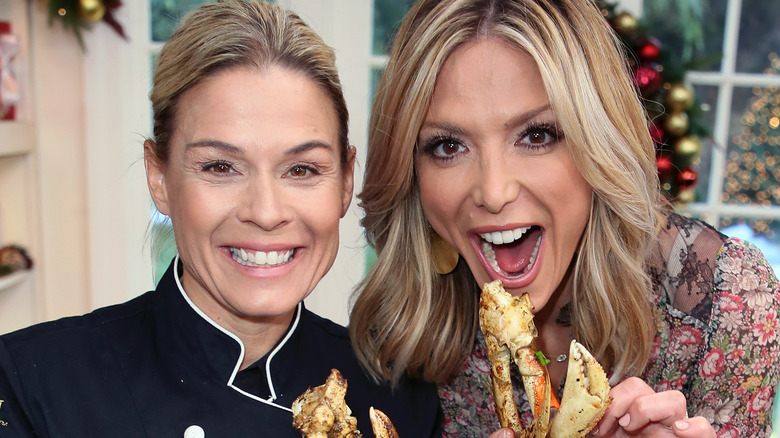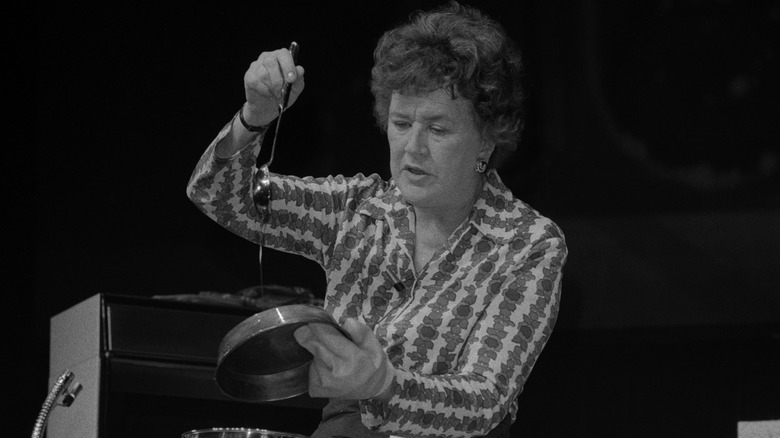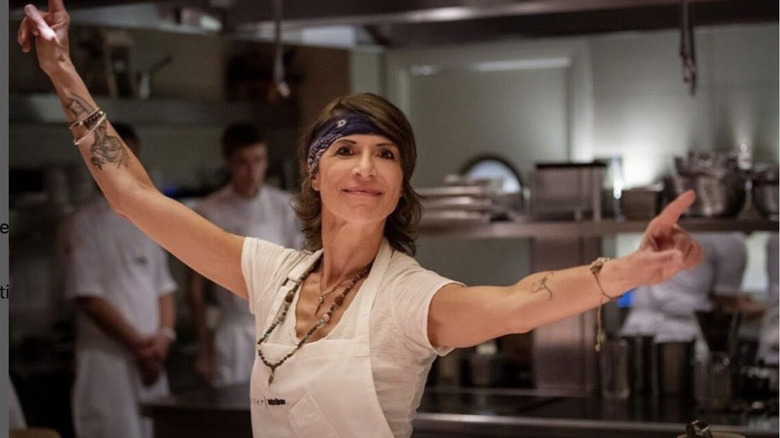Female Chefs Are Still Rare, And We're Over The Diversity Problem In Professional Kitchens
It's no secret we live in a world that views women as homemakers, who perform (along with a million other tasks) cooking for the family. But, when money changes hands, the culinary field is dominated by men. Looking at all the food industry jobs in the U.S., from school lunchrooms to executive chefs at Michelin-starred restaurants, a staggering 75% of chefs nationwide are male. As the prestige and salaries increase, so does the male dominance in the field, with 90% of chefs de cuisine being men compared to 95% of lunchroom monitors being female. And, the issue is global.
Historically, if you ask a chef about their culinary influences, a nurturing mom or grandma is almost always credited as the inspiration behind their passion. Yet, most chefs shown onscreen today are the antithesis of that image; tattooed, shaggy-haired "bad boys" like Hulu's "The Bear." The female chefs that excel in the industry are singled out foremost for being female as if to say, "can you believe a woman has done this too?" A sentiment echoed in a Tweet by the late Anthony Bourdain in 2013:
Why—at this point in history—do we need a "Best Female Chef" special designation? As if they are curiosities?
#2013 #50BestWhat?— Anthony Bourdain (@Bourdain) April 3, 2013
It's concerning that we need to identify the chef's gender, which is irrelevant, before acknowledging their accomplishments. I think we can safely admit that women can cook and that our gender doesn't preclude us from learning the skills necessary to cook at a professional level.
Representation in cooking school
The Culinary Institute of America, one of the premier culinary schools, was founded in 1946 by two females. Yet, there was a period when women were not allowed to enroll in regular courses. It wasn't until 2017 that women were equally represented at the CIA, and today they marginally represent the majority of culinary students at 51%. In fact, when we are underrepresented, we feel the pressure to be better than our male counterparts because our failures are amplified.
Film director Joanna James investigated the lack of female leadership in the culinary industry in her film "A Fine Line," interviewing accomplished female chefs like Cat Cora, Dominque Crenn, and Lidia Bastianich, who make up just 6.6% of head chefs. Unfortunately, James found the same issues plaguing women in other industries are stifling them here, "lack of media coverage, lack of access to capital, lack of access to affordable, accessible childcare" (per Forbes). If we want diverse food, we need a diverse kitchen, so we need to address and fix these issues. Women shouldn't have to choose between work and family.
We need mentors
Female chefs need support from role models, mentors, and investors to break through the glass ceiling. Unfortunately, it is more difficult for female chefs to get funding to open their kitchens; this bias is based on a stereotype that women are the weaker sex. Ironically, the kitchen is the last frontier to dispel that myth since we were told to stay in the kitchen for centuries. This needs to end.
Having a mentor is critical to change. Iron Chef Cat Cora and Lidia Bastianich credit Julia Child for pushing them out of their comfort zone. For Cora, Child told her to attend culinary school and "Always pay it forward. I'm giving you advice now and helping you, but always make sure you pay that forward to young cooks" (per Food Network). For Bastianich, Child invited her to cook on two episodes of her series, "Master Chef," after eating at Bastianich's NYC restaurant, Felidia. Child then "blessed" Bastianich's television trajectory, and Italian food was transformed in America.
With so few female chefs at the top, it is hard for newbies to envision their career path beyond pastry chef, which historically is where men thought women belonged. So, it's up to the few females and a lot of men who see the value in what we bring to food to carve a path for the next generation. That includes the media showcasing female chefs, not because they are females but because their work is extraordinary.
We're way more than just sexy hosts
It's time to shake things up. Female celebrity chefs are either bombshells like Giada De Laurentiis, fulfilling every cisgender man's fantasy of finding a good-looking woman who knows how to cook, or sweet and above reproach like Ina Garten. Accomplished rockstar chefs like Dominique Crenn, the first woman in the U.S. to have a restaurant with two Michelin stars, only to beat her record in 2018, becoming the first woman in the U.S. to earn three Michelin stars, are distinguished foremost as "female" as if that is their most outstanding achievement.
The notion that Garten almost passed up her Food Network program because she didn't fit the sexy mold like Nigella Lawson did is absurd. Can you imagine a life without the "Barefoot Contessa" cooking show or her 13 cookbooks?! I don't want to. We must show more women with talent, no matter how they look, so chefs pursuing this career know something as trivial as their cup size won't impede their culinary resume.
Women represent half of the students in culinary school, so it's time our laws and the restaurant industry stop punishing women for bearing children and find ways to support that personal choice. Motherhood is not an infliction, and all the parties represented shoulder the burden of fixing the issue. Until we recognize that, we are stifling the creativity, ingenuity, and talent women bring to the food industry.



